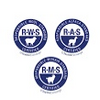
Responsible Animal Fibers (RAF)
About (Responsible Animal Fibers (RAF))
Responsible Animal Fibers (RAF) is a comprehensive framework of standards that specifically addresses animal fibers within the textile sector. It is committed to promoting animal welfare, environmental sustainability, and social responsibility in the production of these fibers. RAF consists of three Textile Exchange labels: the Responsible Wool Standard (RWS), Responsible Mohair Standard (RMS), and Responsible Alpaca Standard (RAS).
The main objective of the RAF standards is to ensure that animal fibers are produced in a responsible and sustainable manner. This encompasses various aspects, including the well-being of the animals, environmental impact, and ethical treatment of workers involved in the production process. The standards set forth rigorous criteria and requirements that producers must meet to obtain RAF certification.
The RAF certification holds significant importance within the textile industry, particularly for products containing animal fibers. It is regarded as the most crucial standard for ensuring the responsible sourcing and production of these fibers. The certification provides assurance to consumers that the animal fibers used in the products have been produced with respect for animal welfare and environmental sustainability, from the farm to the harvesting stage.
Recognized globally, the RAF certification serves as a comprehensive framework for the certification of animal fibers. It sets consistent and transparent guidelines that producers and supply chain stakeholders can follow to demonstrate their commitment to responsible practices. By adhering to the RAF standards and obtaining certification, companies can showcase their dedication to animal welfare and sustainability, which resonates with increasingly conscious consumers.
In addition to its focus on animal welfare, the RAF framework also emphasizes environmental considerations and social responsibility. This means that certified producers must comply with sustainable agricultural practices, minimize their ecological footprint, and ensure fair and safe working conditions for employees.
By implementing the RAF standards and seeking certification, the textile industry can contribute to a more sustainable and ethical approach to animal fiber production. It provides a reliable and recognizable assurance to consumers, enabling them to make informed choices and support products that align with their values.
Overall, the Responsible Animal Fibers (RAF) framework, encompassing the Responsible Wool Standard (RWS), Responsible Mohair Standard (RMS), and Responsible Alpaca Standard (RAS), plays a crucial role in promoting responsible and sustainable practices in the production of animal fibers. Through its certification, RAF ensures that animal welfare, environmental sustainability, and social responsibility are prioritized, allowing consumers to make conscious decisions and support the textile industry's positive impact.